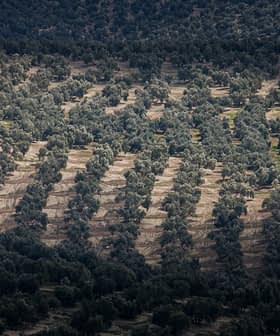Andalusia’s regional government, the Junta de Andalucía, has agreed with the Spanish Ornithological Society (SEO/BirdLife) to expand the presence of the LIFE Olivares Vivos+ olive cultivation model to reduce the region’s carbon dioxide footprint.
The regional Ministry of Agriculture, Fisheries, Water and Rural Development will provide €200,000 in direct funding for areas such as communication and public awareness, training and project management in areas particularly sensitive to climate change.
According to the terms of the agreement, the ministry will also be responsible for communicating the project results to the olive sector and via scientific publications.
See Also:Andalusian Government Requests CAP Changes for Olive GrowersThe agreement is part of a five-year initiative to accelerate the adoption of the Olivares Vivos model by more regions of Spain, Portugal, Greece and Italy. The project is scheduled to run until September 2026.
By the end of this period, the initiative is expected to have increased the area occupied by Olivares Vivos-certified oil-producing olive groves by at least 10,000 hectares and to result in, amongst other benefits, a significant increase in biodiversity, a decrease of at least 50 percent in pesticide usage, and a 25 percent increase in the net ecosystem carbon dioxide exchange across the new groves.
The Olivares Vivos cultivation model, based on research carried out by the ecology department of the University of Jaén and the Arid Zones Experimental Station of the Spanish National Research Council seeks to reduce the negative environmental impact of olive farming while increasing biodiversity.
This is accomplished by introducing non-crop native species; encouraging and maintaining herbaceous ground cover between trees; installing support infrastructures for fauna such as ponds, nesting boxes and fencing posts; and restoring so-called “unproductive areas” in olive groves such as gullies, streams, tracks and walls.
Previous research has demonstrated that while all olive groves act as carbon dioxide sinks, those following traditional cultivation models remove more than double the carbon dioxide equivalent from the atmosphere per kilogram of oil produced compared to those using high-density farming methods.
Central to achieving the initiative’s stated goals is the effective communication of the benefits of the Olivares Vivos model to the olive industry and the public at large.
This is invaluable if the model is to expand as expected, not least because the planned 7 percent annual increase in the market demand for oil produced by certified groves would increase its economic viability.
According to the Spanish government, Andalusia, the largest olive oil-producing region by far and home to most of the world’s high-density olive groves, is among the territories most at risk of severe environmental damage caused by the shift away from traditional farming methods.









